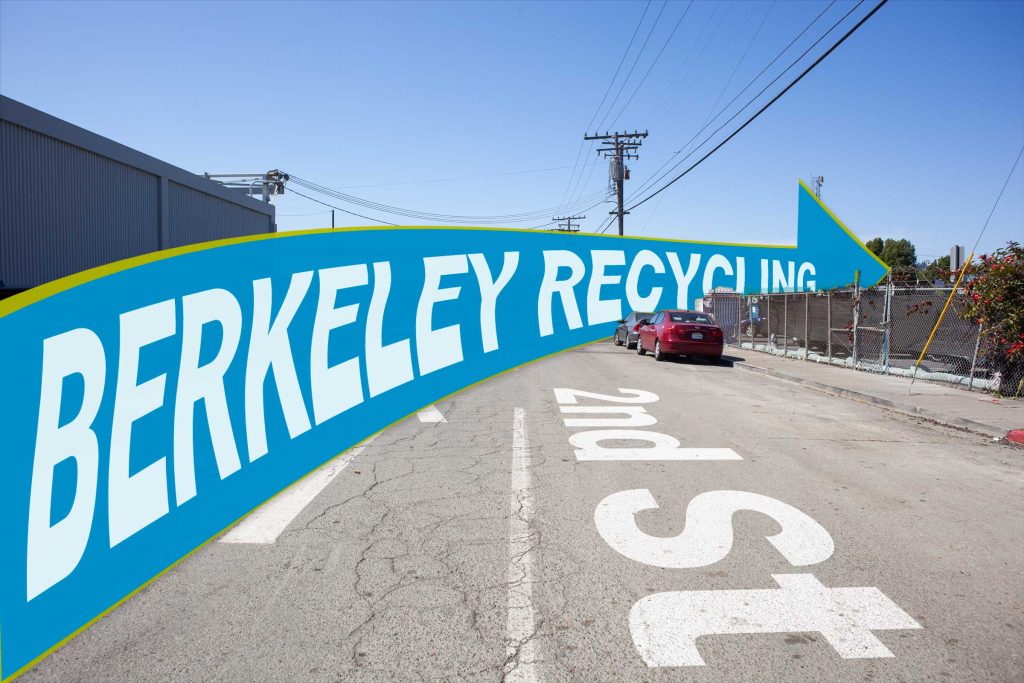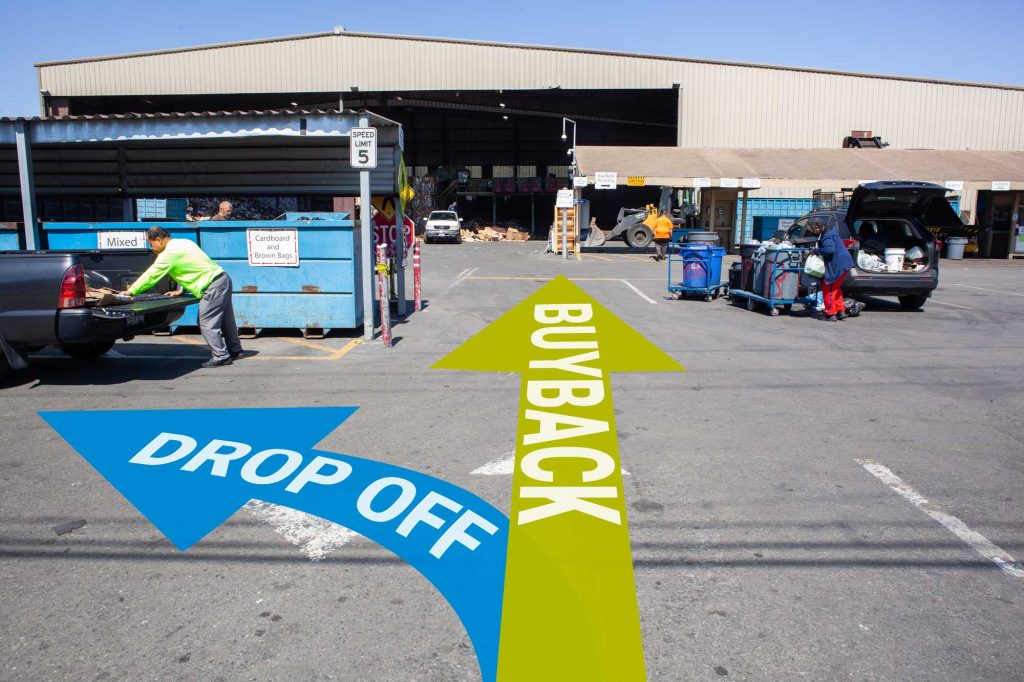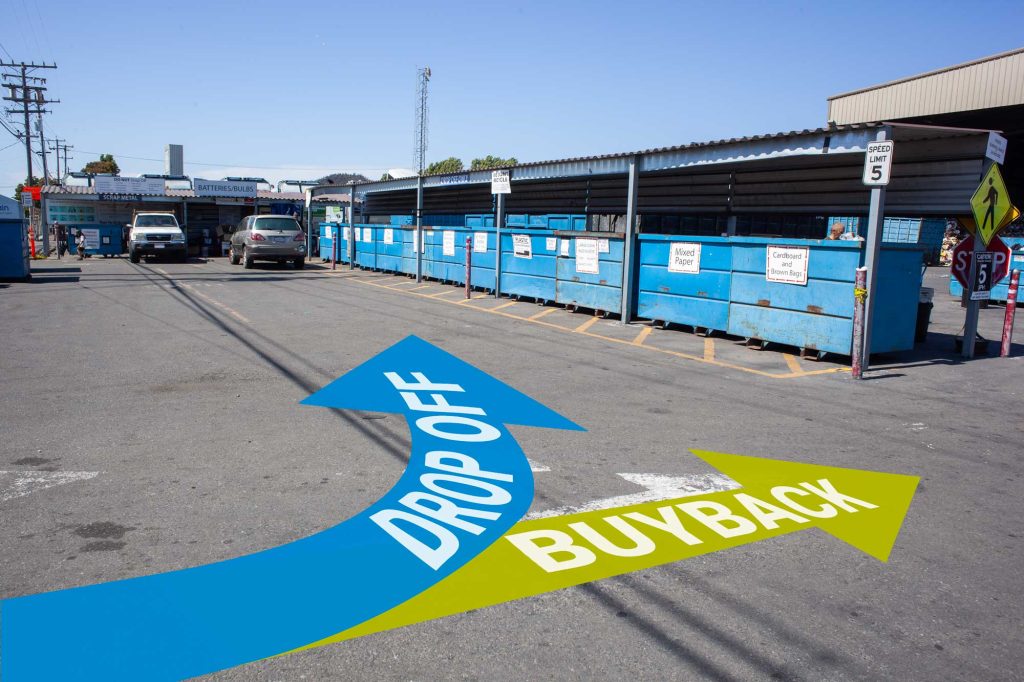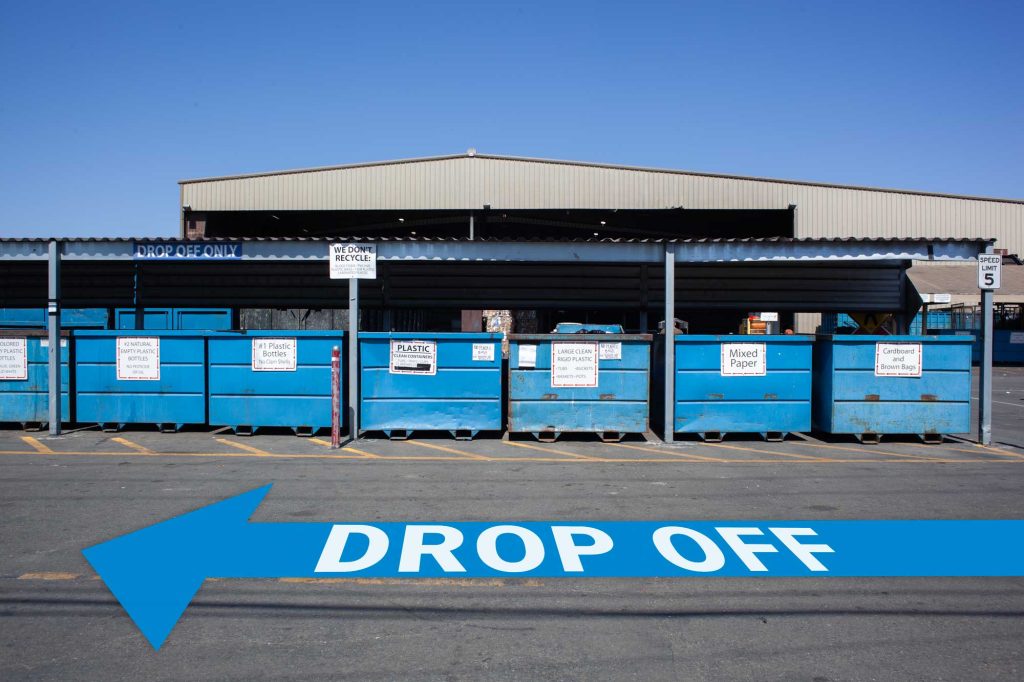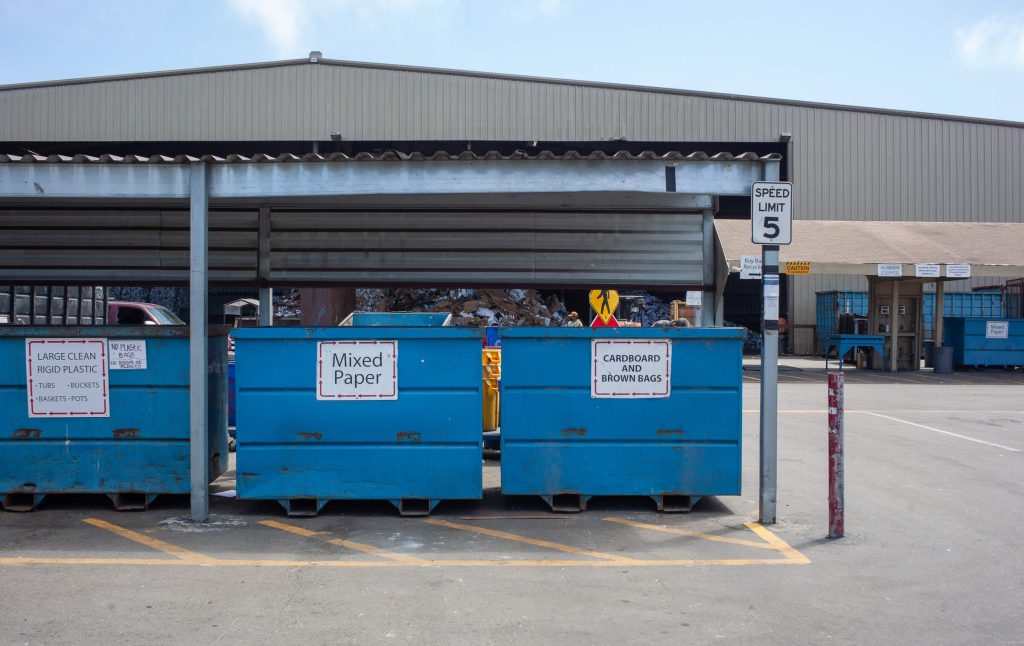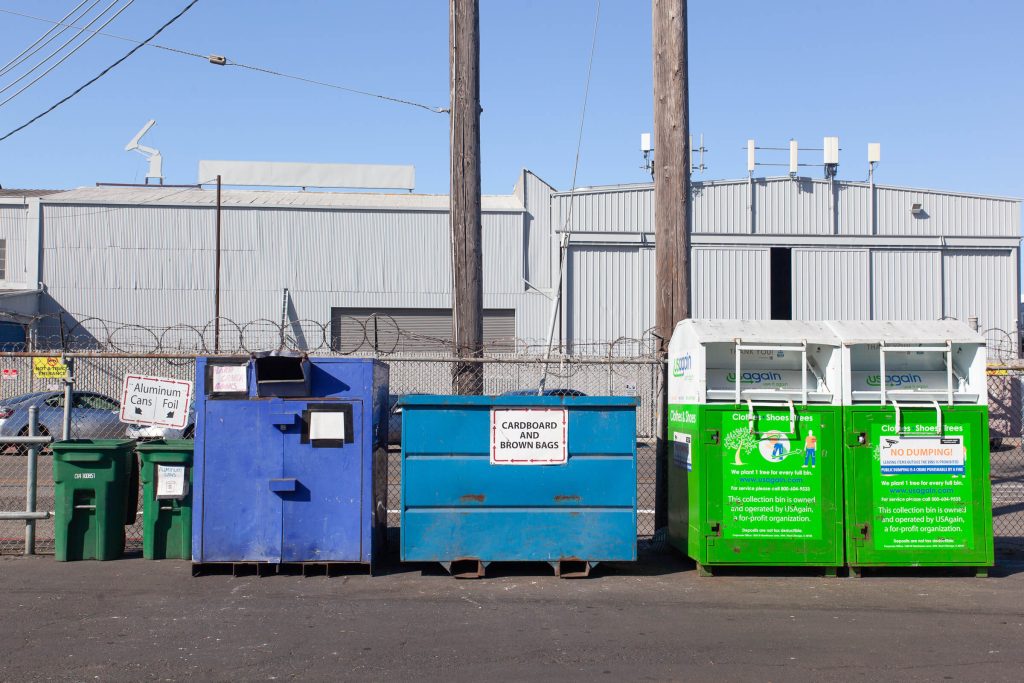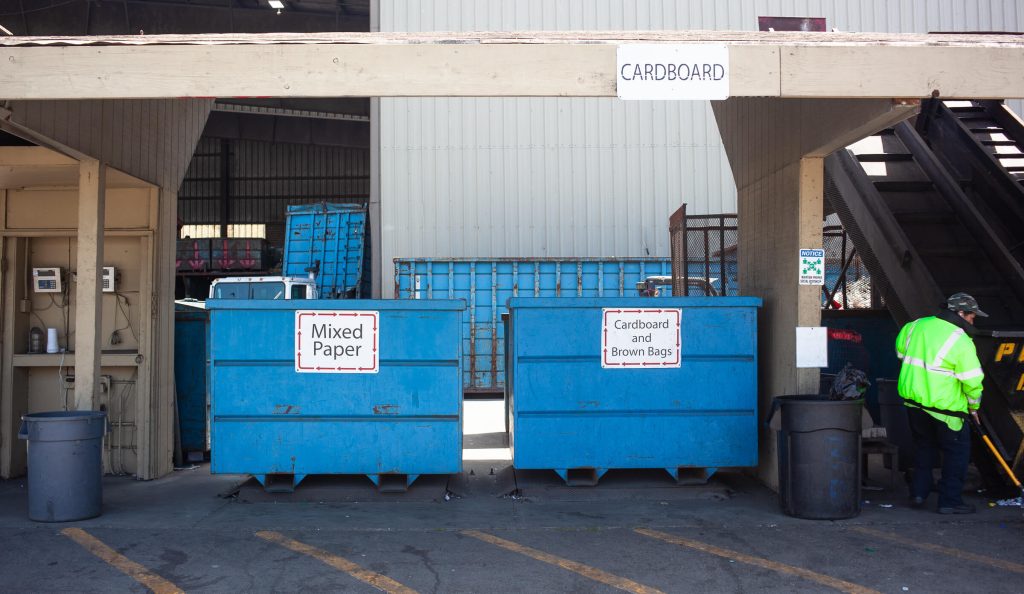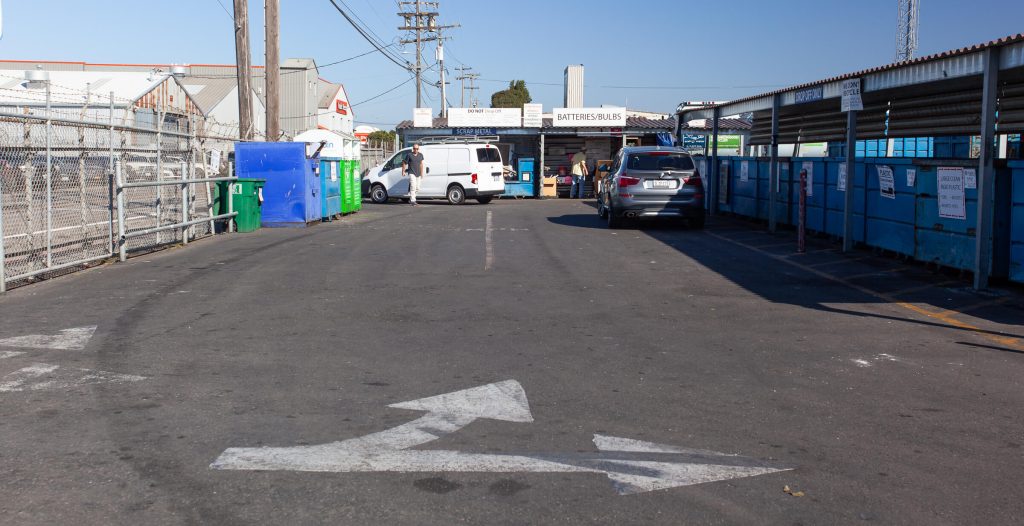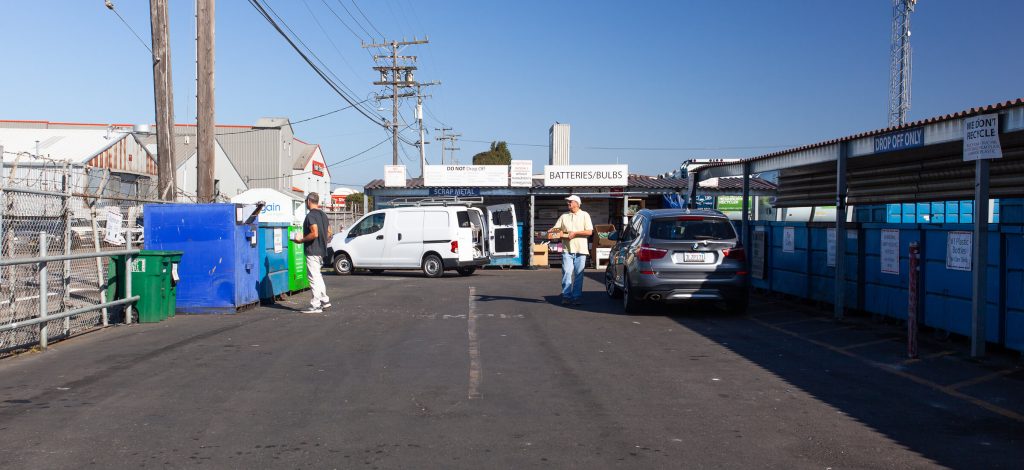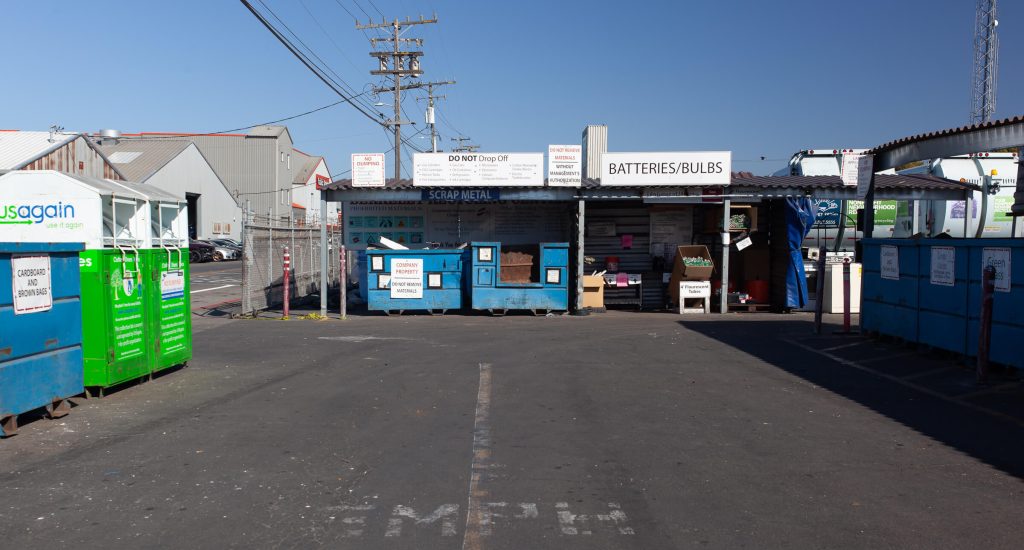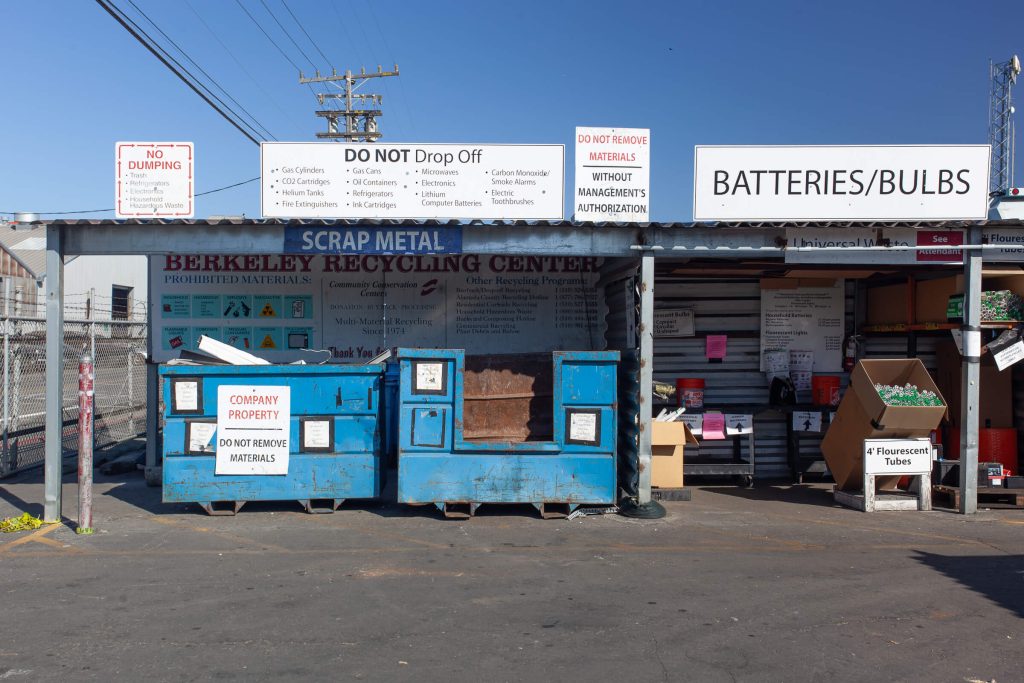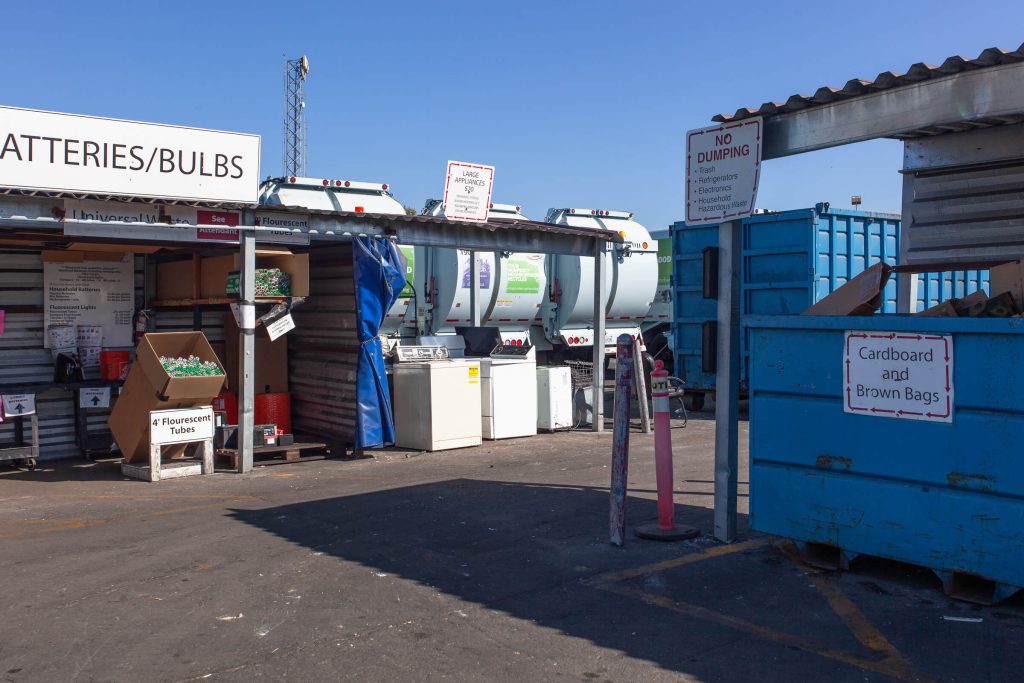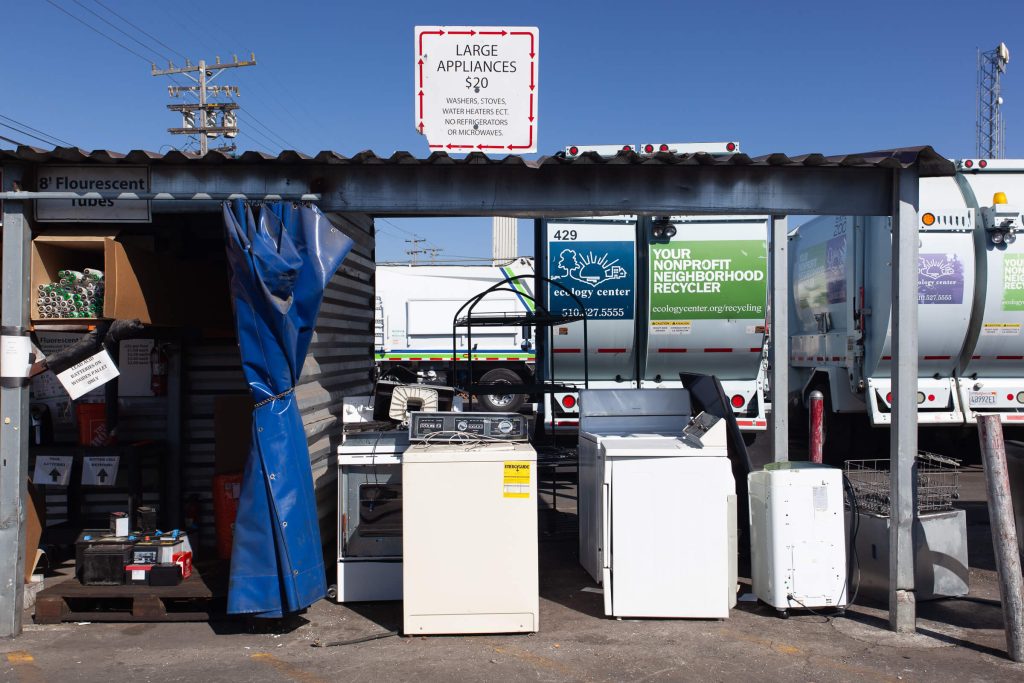Mission
Community Conservation Centers Inc. (CCC), dba Berkeley Recycling, celebrates five decades of unwavering commitment to shaping a sustainable future through recycling.
Since its inception in the 1970s, CCC has been instrumental in guiding Berkeley towards achieving its ambitious recycling goals and state mandates. Throughout the years, CCC has continuously adapted and modernized its Buyback, Drop-off, and dual-stream processing systems, demonstrating remarkable agility in the face of evolving industry standards.
Berkeley Recycling remains on the cutting edge, playing a critical role in the City’s Zero Waste strategy. As it strives to push the boundaries of the industry, it consistently produces the highest quality recycled materials.
History
Driven by the goal of closing the Berkeley waterfront landfill and diverting resources from waste, young environmentalists in the early 1970s established a non-profit organization: Community Conservation Centers (CCC), officially incorporated on September 10, 1974.
Initially operating a drop-off center, CCC advocated for the inclusion of official recycling policies in the City’s Solid Waste Plan. Their efforts secured a pivotal $350,000 grant from the California Solid Waste Commission, which came with a requirement for a permanent location and long-term lease.
Seeing an opportunity, CCC partnered with the City to integrate a state-of-the-art recycling buyback, drop-off, and processing facility into the planned Berkeley Material Recovery Facility (MRF) adjacent to the transfer station. This collaboration, cemented by a lease agreement, led to the construction of the first-generation Berkeley Recycling facility.
This critical decision, shaped by CCC’s experience and the grant funding, proved pivotal for the city’s recycling future. For over four decades, CCC has operated and evolved Berkeley Recycling, overcoming challenges and adapting to the changing industry with creativity and dedication.
Their success is attributed not only to a strong foundation in recycling but also to a committed workforce. CCC has consistently championed diversity and fostered a collaborative environment, where both long-term employees and the 32 Industrial Workers of the World (IWW) union members play crucial roles.
By integrating its three recycling programs at one location, CCC has further streamlined operations, ensuring efficient resource allocation under the leadership of a lean management team.
Moving forward, CCC remains committed to being a leading example of excellence within the recycling industry.
How CCC Benefits The City of Berkeley
- Offers a convenient and reliable recycling location for surrounding communities.
- Leverages experienced, local expertise to design, build, and operate Berkeley’s recycling programs.
- Made strategic investments in infrastructure to capitalize on the growing recycling trend.
- Gave Berkeley an early advantage in meeting state recycling mandates.
- Supports the local economy by paying customers millions in redemption fees for their recycling efforts.
- Partners with the City to continually invest in improving facilities, equipment, and operations, ensuring efficient recycling.
- Produces the highest-quality recycled materials in the industry, significantly offsetting recycling costs for the City through material sales.
Zero Waste Partners
In collaboration, the City of Berkeley, Community Conservation Centers (CCC), Ecology Center, and Urban Ore provide comprehensive solid waste and recycling services for the Berkeley community.
- Operates a transfer station for waste collection and management.
- Manages the solid waste plan and oversees commercial recycling and green waste programs.
- Contracts with local, community-based organizations for essential reuse and recycling services.
Community Conservation Centers (CCC)
- Operates Berkeley Recycling (buyback, drop-off, and processing facilities) established in 1982.
- Continues to be a pioneer in the recycling industry.
- Provides weekly curbside recycling collection.
- Promotes environmental awareness and advocates for a Zero Waste vision.
- Operates local farmers markets and a storefront for sustainable goods.
- Rescues reusable materials from the transfer station.
- Operates a reuse facility at 900 Murray St. for buying and selling second-hand items.
What Does CCC Do?
Community Conservation Centers (CCC) operates Berkeley Recycling, offering a variety of services to support the community’s recycling needs:
- Drop-off: This program, where individuals can bring their recyclables for free, was CCC’s initial venture in the 1970s. It offers conveniently labeled bins for easy sorting. See the Materials Preparation to learn how to prepare your materials for drop-off.
- Buyback: Established in 1982, this program provides one of the few locations in California where you can receive a refund for CRV (California Redemption Value) containers purchased in the state. Additionally, CCC collects and redeems CRV materials from residential and commercial programs. Visit the Buyback: link to buyback page and Materials Preparation: link to preparation requirements pages for current prices and preparation instructions.
- Dual-stream multi-material processing facility: This facility oversees receiving, tracking, sorting, baling, storing, marketing, shipping, and reporting on all incoming and outgoing recyclable materials collected in Berkeley.
For a visual overview, explore the Berkeley Recycling Site Map. All recycling services are now conveniently located at 2nd and Gilman Street in Berkeley.
CCC’s Material Recovery and Processing Operation
Processing
Berkeley Recycling processes roughly 16,000 tons of recyclables annually, primarily from residential and commercial sources. These materials arrive in two streams: commingled fibers (paper and cardboard) and containers (metals, plastics, and glass).
- Accurate tracking: All customers’ materials are weighed separately including Buyback customers and city collection trucks. CCC utilizes eleven scales and sophisticated software to record each transaction.
- Efficient sorting: City collection trucks bring material in two streams – containers and paper – offloading each commingled material by their appropriate sorting system which separates the materials into different commodities.
- High-speed baling: Each sorted commodity is then delivered to our high-speed baler, compacting over 80% of the material into roughly 25,000 bales annually.
- Minimized waste: This dual-stream approach, combined with source-separated buyback and drop-off materials, allows Berkeley Recycling to achieve an impressive 95% recycling rate, with residual waste limited to just 5%.
Economic Impacts:
- Buyback program: The buyback program issues approximately 44,000 checks annually, totaling roughly $1.8 million in customer payouts.
- Sustainable impact: Over five decades, Berkeley Recycling has marketed an estimated 500,000 tons of recyclables, generating over $100 million in revenue. This income significantly offsets the City’s recycling costs and supports a sustainable future.
Fiber Stream
The fiber stream at Berkeley Recycling has undergone a significant shift over the years. Initially, it primarily comprised newspapers, magazines, and catalogs. However, the composition has largely transitioned to cardboard and mixed paper.
The state-of-the-art fiber sorting system efficiently separates and cleans this incoming material:
- Offloading: Trucks unload their commingled fiber into a designated area.
- Conveyor belt: A loader pushes the material onto a conveyor belt that feeds an elevated sorting platform.
- Sorting platform: Up to six sorters stationed on the platform remove contaminants (trash and containers) and separate the mixed paper into cardboard and mixed paper.
- Separation:
- Cardboard is placed into a chute that feeds into designated bays below.
- Containers and trash are collected in separate bins.
- Mixed paper falls off the end of the platform and onto a conveyor.
- Baling: A loader then pushes the sorted cardboard and mixed paper onto a conveyor for baling.
- Waste management: A forklift operator removes and manages the collected containers and garbage.
Container Stream
Similar to the fiber stream, the container stream at Berkeley Recycling has witnessed significant changes, particularly an increase in plastic packaging and ongoing confusion about what can be recycled (see Mixed Plastic guide).
Our advanced container sorting system effectively addresses these challenges:
- Intricate sorting: We meticulously separate commingled materials into thirteen categories, including:
- Mixed Plastic (refer to guide for clarification)
- Fiber (paper and cardboard)
- Trash
- #1 Plastic
- #2 Plastic (natural/color)
- Tin cans
- Aluminum cans
- Bi-metal cans
- Aluminum foil
- Separated brown, green, and clear glass
- Streamlined process:
- Trucks unload commingled containers in a designated area.
- An in-feed conveyor delivers the material to a 60-foot sorting platform with eight stations.
- Sorters meticulously separate the materials at their stations.
- Eight sorting conveyors transport the separated materials to designated bins.
- Forklifts or roll-off trucks transport the full bins for baling.
- Glass bypasses the conveyors and falls into designated bays for direct transport to the market.
Baling
The baler plays a crucial role at Berkeley Recycling, compacting hand-separated materials into marketable bales. Each commodity is stored separately before being loaded onto trucks for transport to market. This allows for efficient storage and transportation, enabling CCC to load up to 46,000 pounds in under an hour.
Baler’s importance:
- Processes over 80% of incoming recyclables, making it essential for CCC’s operations.
- Secured long-term stability: Negotiations with the City secured a new 10-year contract starting in 2021.
- Upgraded equipment: A larger 600k baler was recently acquired to improve efficiency.
Looking ahead:
While these advancements are positive, infrastructure challenges remain. Both the transfer station and the recycling facility infrastructure require modernization to ensure long-term sustainability. Addressing these upgrades will be crucial for continued success.
Timeline

1974
Officially Incorporated as a nonprofit organization and open first Drop-off Recycling Center on the corner of Dwight Way & Martin Luther King Jr. Way in Berkeley California



1981-82
The Buyback, Drop-off, and multi-material processing Centers opened (Berkeley Recycling)

1986
California introduced the bottle bill, and CCC became one of the first Certified Recycling Centers in the State and has continued to be certified for over four decades.

1989
The State passed the Source Reduction Act AB939, which mandated cities to reduce the amount of waste going to the landfill by 25% by 1995 and 50% by 2000.

1991
The City of Berkeley introduced the commercial recycling program.

1995
Recycling started to expand, and tonnage swiftly increased CCC applied and awarded a Market Development grant to increase throughput and capabilities to keep up with the increase in materials.

1998
A fire destroyed the pole barn, Baler, and other critical processing equipment. Without hesitation, CCC began the clean-up. The Buyback and drop-off opened a month later; during that time, CCC brainstormed and evaluated different options. CCC’s final plan included a larger building with sprinklers, a new paper sorter, and a baler. CCC contributed 800 k from insurance, and the City of Berkeley contributed 1.1 million to fund CCC’s redesign and construction proposal. The rebuild project proceeded for two years while CCC continued to receive and ship all the City’s material off-site.

2000
The new building, Baler, and paper sorter were installed and functioning. The City of Berkeley achieved the 50% diversion goal.

2001
CCC fabricated the container sorting system so Berkeley could introduce plastics #1 and #2 into their recycling programs and reduce plastics from the waste stream.

2005
The City’s diversion rate surpassed 75%.

2006
CCC set up a universal waste drop-off that captures 10 tons of batteries and bulbs per year, diverting them from going to landfills.
2010
The Internet and online shopping changed consumer behavior, and the recycling ton started evolving, less printed media and more plastics.

2012
The City set a policy to to capture and divert more plastics. CCC applied and was awarded a 200k grant from Stop Waste, allowing CCC to integrate mixed plastics into the drop-off, processing, and marketing capabilities. The upgrades allowed the City to add mixed Plastic to the residential and commercial collection programs. Quickly mixed plastic tons went from 0 to 300 tons per year. However, prices began falling, and markets disappeared. CCC started to pays over $75 per ton to have Mixed Plastic pre-sorted at a secondary MRF. Mixed Plastic is by far the most costly material recycled at Berkeley Recycling

2013
China implemented the Green Fence, the intensive inspection of all loads of scrap material entering China. All commodities exported had to be under 2% throw-out.
2017
China’s National Sword took effect, banning imports of most recyclables. China went from importing 70% of global recyclables to almost Zero. China’s exit created a significant reduction in demand for recycling markets, and only the top-quality commodities would pass inspection; if you could not meet the criteria, you could not ship or worse recyclers had to pay to have the material shipped back. CCC added sorting staff to meet the strict 2% throw-out quality standards.

2020
On March 17, 2020, CCC closed the Buyback and Drop-off centers to the public due to Covid 19. Berkeley Recycling continued to process Berkeley’s residential and commercial materials while implementing mask and social distance protocol could be implemented. CCC was permitted to reopen in early May 2020.
2021
After three years of one-year contracts, CCC and the City negotiated a new 10-year agreement.

2023
CCC replaced the 23-year-old Baler with a larger capacity baler.
2024
The City again has to make crucial capital decisions regarding the future of Berkeley’s Zero Waste program. The #1 concern is how to address an aging MRF and the new stricter environmental requirements rapidly approaching. The City is contemplating whether to replace the entire MRF by starting from scratch or build upon what is working and focus on the most critical facilities. CCC is ready to assist and lend the City support and expertise with this challenging project.
